Handwriting improvement Tracing Letters Worksheets for Ages 3-7
5 filtered results
-
From - To
Enhance your child's handwriting skills with our Handwriting Improvement Tracing Letters Worksheets, specifically designed for ages 3-7. These engaging worksheets provide a fun, effective way for young learners to practice letter formation, promoting fine motor skills and early literacy. With colorful, visually appealing exercises, children will enjoy tracing uppercase and lowercase letters, building their confidence and accuracy. Ideal for use at home or in the classroom, our worksheets cater to various learning styles, allowing each child to progress at their own pace. Start your journey towards beautiful handwriting today and watch your child's skills flourish!
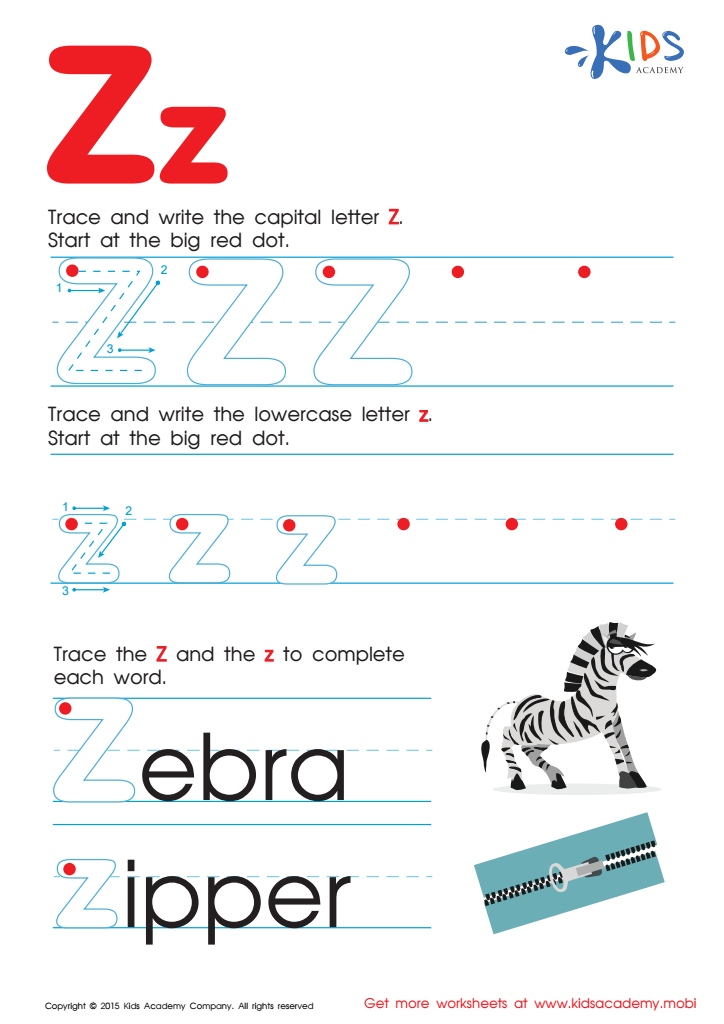

Letter Z Tracing Page
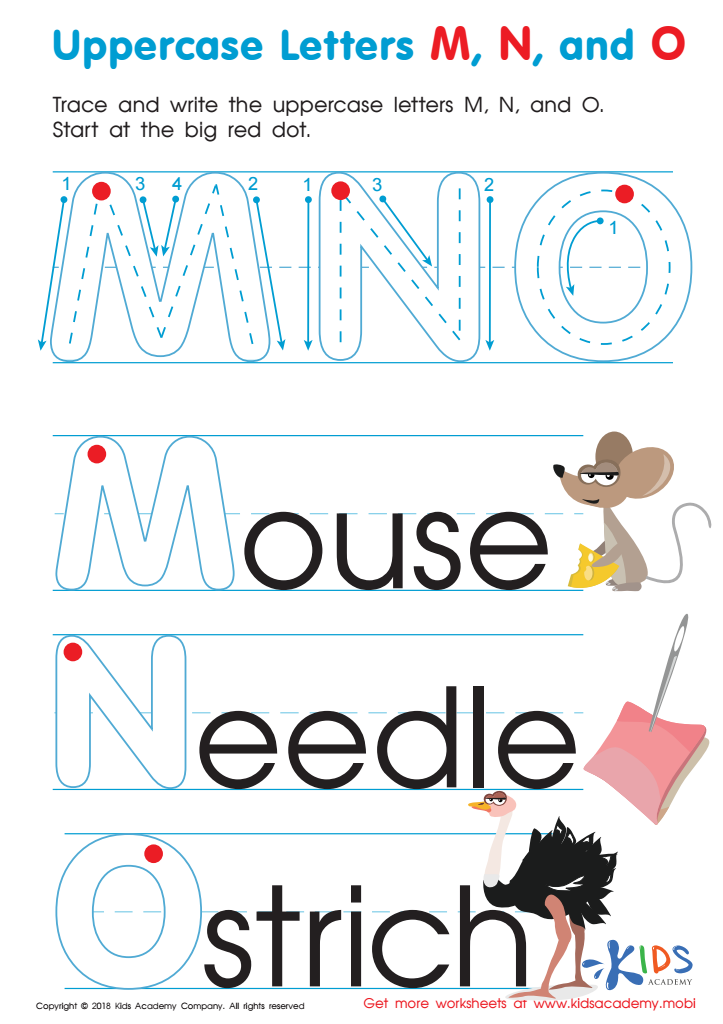

Uppercase Letters M, N, and O Worksheet
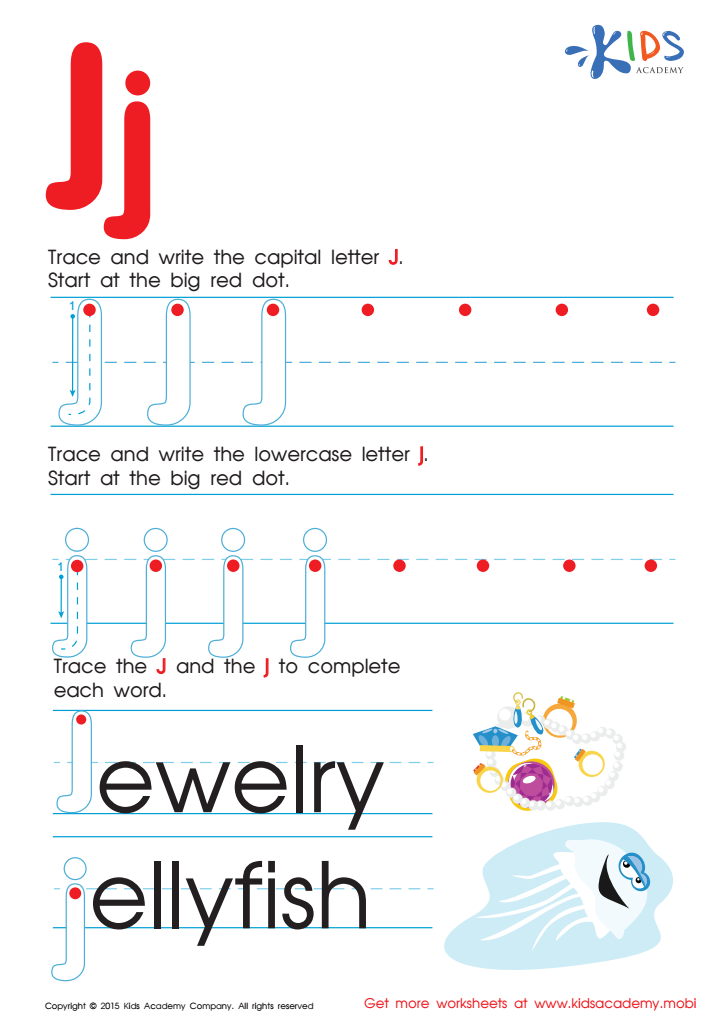

Letter J Tracing Page
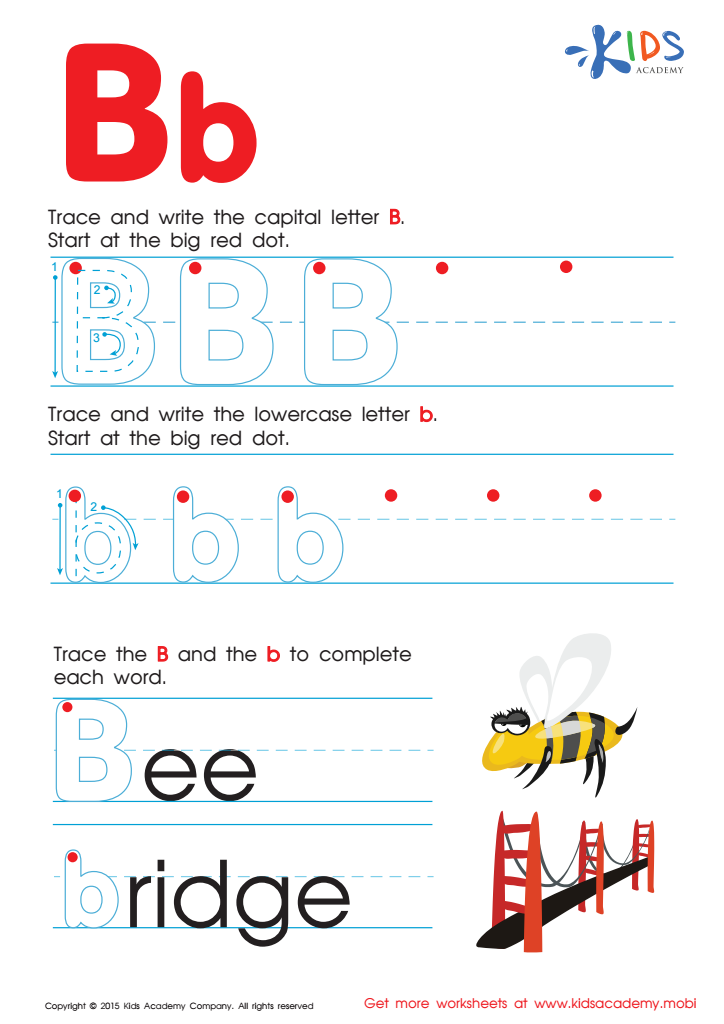

Letter B Tracing Page
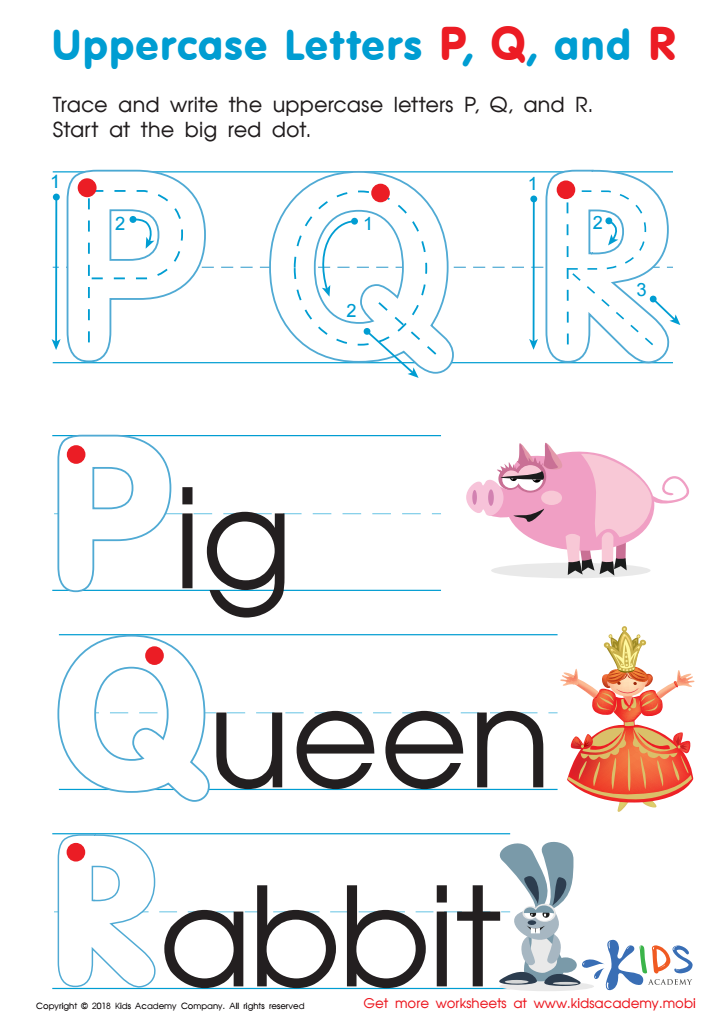

Uppercase Letters P, Q, and R Worksheet
Handwriting improvement, particularly through tracing letters for ages 3-7, is vital for several reasons. Firstly, early handwriting skills lay the foundation for effective communication. At this age, children transitioning from motor scribbles to coherent written expressions are pivotal for their linguistic development. Tracing letters helps them develop fine motor skills and hand-eye coordination crucial for their overall motor development.
Moreover, handwriting contributes to cognitive development. Engaging in tracing activities encourages focus and concentration, enhancing brain-building processes. Children practice letter formation, which reinforces their understanding of the alphabet, spelling, and phonics.
Additionally, mastering handwriting alleviates frustration as children gain confidence in their writing abilities. This confidence can positively influence their attitude toward learning, fostering a desire to express themselves in written form as they grow.
Parents and teachers should also recognize the connection between handwriting and academic performance. Good handwriting ensures better comprehension and retention of ideas, which is particularly relevant as children transition into more complex learning phases.
In essence, prioritizing handwriting improvement through tracing exercises not only prepares children for academic success but also nurtures essential skills for future communication and expression. By investing time in this developmental area, adults can support well-rounded growth in children.
 Assign to My Students
Assign to My Students



















